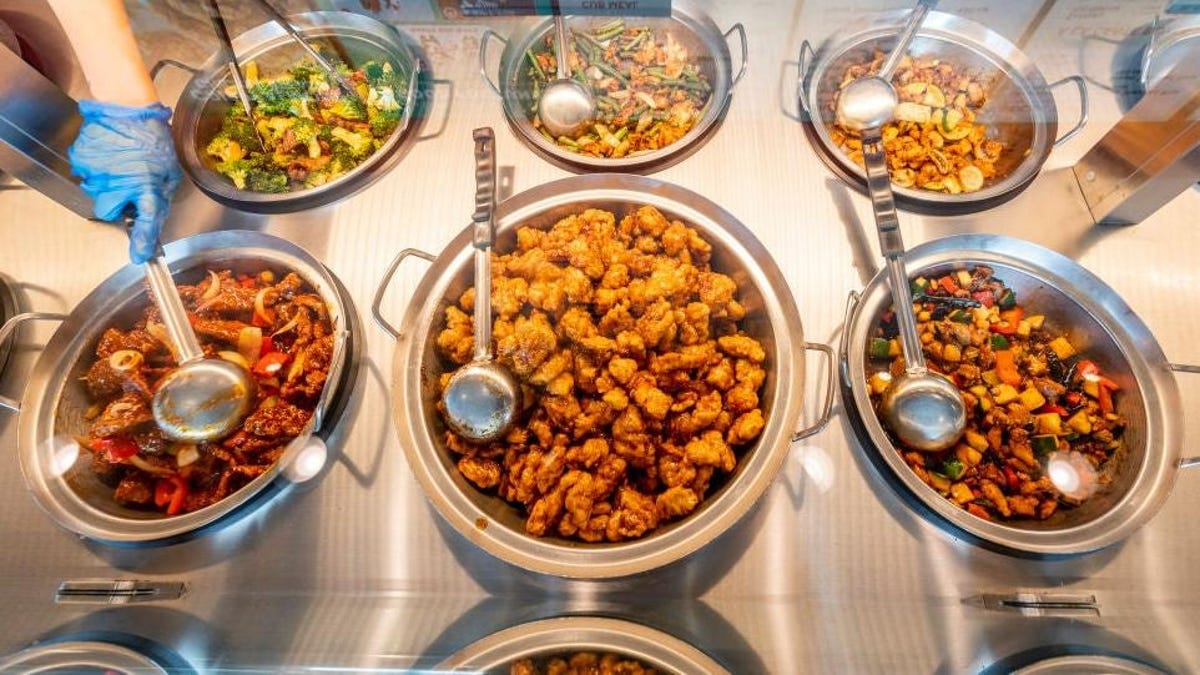Bhutani, Ph.D., is assistant professor in the School of Exercise and Nutritional Sciences at San Diego State University, and lives in Del Cerro.
On my weekly runs to my local grocery store, I am always conflicted in the produce aisle. Should I pay more to purchase the ostensibly better versions of fruits and vegetables, aka organic produce, or stick to non-organic produce? Organic food is touted as a “better for you” option, but whether to spend extra dollars on organic products has become a global point of confusion, something that everyone tries to justify in their way.
Commentary
Organic product sales just keep growing and growing
Organic sales of food and non-food products alike are soaring in the United States, jumping a record 12.4 percent to $61.9 billion in 2020 after a 5 percent increase in 2019.
We provide this platform for community commentary free of charge. Thank you to all the Union-Tribune subscribers whose support makes our journalism possible. If you are not a subscriber, please consider becoming one today.
So why is the world obsessed with organic food? If we look back in history, the modern organic movement truly began in Europe in the 1920s to counteract the industrialization of agriculture. As the unrestricted use of fertilizers and pesticides increased, especially with the advent of the DDT pesticide in the 1940s, crop yields improved. These chemicals were inexpensive to produce, effective in killing pests and had low acute toxicity. But over time, the evidence of the negative impact of these chemicals on the environment and human health accumulated, and it eventually became a public health concern in the 1960s. This concern triggered a significant push towards organic farming. Coming back to the current times, the demand and preference for organic produce are still growing, evident from sales of U.S. organic products going up 12.4 percent in 2020.
While the demand and preference for organic foods have gained traction, we pay a premium for organic farming practices due to the expensive production process and high labor efforts. Additionally, organic produce inherently can’t be produced in bulk. If a bag of organic carrots requires so many resources to produce and costs more than the conventional one, why are we still buying it? A simple explanation is when we buy organic produce, we are purchasing an assurance that the food is safer and healthier than its conventionally produced counterpart.
Using the definition established by the U.S. Department of Agriculture’s National Organic Program, organic crops are grown without applying herbicides, pesticides and fertilizers, and animals are reared using humane practices. Organic food enthusiasts seem to value food safety and ethical self-identity, which spans issues including the environment and animal welfare. Surveys also show that most consumers choose organic foods to avoid pesticides. Predictably, many belong to households with children. While organic produce does have lower synthetic pesticide residue, the non-organic produce has levels well below safety standards and poses minimum risk to humans. As a matter of fact, a vast majority of pesticide exposure is from non-dietary routes at home and workplace. Consumers’ willingness to pay a premium for organic products is reflective of their trust and confidence in the message that the organic label conveys. Although there is no way to be certain from purchase or consumption if the organic attributes truly hold, the perceived benefit of organic food surpasses rational thinking.
“Organic” has become a buzzword, and these products are marketed as a healthier alternative to conventional options. An important question to ask is this: Is the “healthy” label just marketing hype to woo customers into purchasing products?
It seems that the health benefits that we perceive with the organic label may be all in our heads. After all, many of our food-related decisions are based on emotions rather than reason.
For example, in 2011, Jenny Wan-Chen Lee and colleagues conducted a study where they labeled cookies, potato chips and yogurt samples as organic or non-organic, although they were identical and organically produced. Participants estimated organic-labeled samples to be lower in calories, lower in fat and higher in fiber, and worth the higher cost than foods without the organic label. Interestingly, when blinded participants evaluated the taste of vegetables (lettuce, spinach, arugula, mustard greens, cucumber, tomato and onions) grown using conventional and organic methods, they reported no significant difference in overall liking as well as for intensity of flavor and bitterness.
Recently, an analysis of the social network Twitter examined the perception of healthy foods by identifying the most common hashtags used in connection with the hashtag #healthyfood in the year 2020. The three characteristics of food that people used the most with #healthyfood were vegan, homemade and organic. Most scientific studies also report that organic produce consumers tend to be from a higher education and income background, have healthier body weight and healthier diets, and participate in more physical activity than those who do not or seldom use organic food. In terms of nutritional value, scientific studies agree that while there are some compositional differences between organic and conventionally grown foods, it is unclear whether there is a positive impact on health with organic food intake.
Organic produce may reduce the risk of allergic diseases and obesity, but the evidence is inconclusive as organic food consumers tend to have healthier lifestyles. Also, there is some evidence that organic dairy products and meats have a higher content of healthy fats than conventional products, but the differences are of marginal nutritional significance. Further, considering that everyone can’t afford to buy organic food due to its hefty price tag, adding more fruits and vegetables to one’s diet is more beneficial regardless of whether they are organic or conventional. After all, a conventionally grown carrot will always be a better choice for health than a chocolate bar made with organically grown cocoa.
All in all, eating organic may not be more nutritious than eating conventional, and the organic vs non-organic dichotomy is not as useful as it seems. One must not give the organic sticker too much power or get so caught up on whether every food is organic or not. An overall healthy diet with fruits and vegetables is the way to go.
Get Weekend Opinion on Sunday mornings
Editorials, Commentary, Reader Reaction and a touch of Steve Breen delivered every Sunday.
You may occasionally receive promotional content from the San Diego Union-Tribune.
More in this section
Commentary
Opinion: The Battle of Bataan took place 80 years ago. Here’s local POW Bill Montgomery’s story.
The stories of POWs and MIAs are usually relegated to the periphery of history. This is as true for World War II as it is for other wars.
Commentary
Opinion: Community gardens help students blossom and grow. As a therapist, I’ve seen it firsthand.
The garden teaches students about nutrition, stewardship of the earth, collaboration of neighbors and more.
Commentary
Opinion: Sens. Feinstein, Padilla tout progress on border pollution while frustration mounts
The EPA is moving forward with the $300 million secured in the US-Mexico-Canada trade agreement. But not quickly enough for some San Diegans.
Commentary
Opinion: Manny Machado wore a ‘Let’s Go, Brandon’ T-shirt and San Diegans have opinions
Two letter writers tell The San Diego Union-Tribune what they think about the Padres third baseman’s wardrobe statement.
Commentary
Opinion: When I chose Cesar Chavez as my American hero, my teacher said he wasn’t American
Did she miss the part in my paper where Cesar Chavez had served this country’s military, and lived and worked to empower people in the U.S.?
Commentary
Opinion: Cesar Chavez was my father-in-law and my boss for many years. Here’s what he taught me.
Cesar Chavez’s movement brought new dignity for farmworkers as human beings, and respect for their rights as workers.
Get Weekend Opinion on Sunday mornings
Editorials, Commentary, Reader Reaction and a touch of Steve Breen delivered every Sunday.
You may occasionally receive promotional content from the San Diego Union-Tribune.
Most read opinion stories
Commentary
Opinion: Manny Machado wore a ‘Let’s Go, Brandon’ T-shirt and San Diegans have opinions
Commentary
Opinion: A photography project in my native Afghanistan led me to open a school for children we can’t forget
Commentary
Assemblywoman Shirley Weber on the issues
Commentary
The Spirit of Patriotism
Editorials
Endorsement: Alvarez, Gómez both strong Assembly District 80 candidates. Here’s why we favor Alvarez.
Privacy Policy
Terms of Service
Sign Up For Our Newsletters
Follow Us




